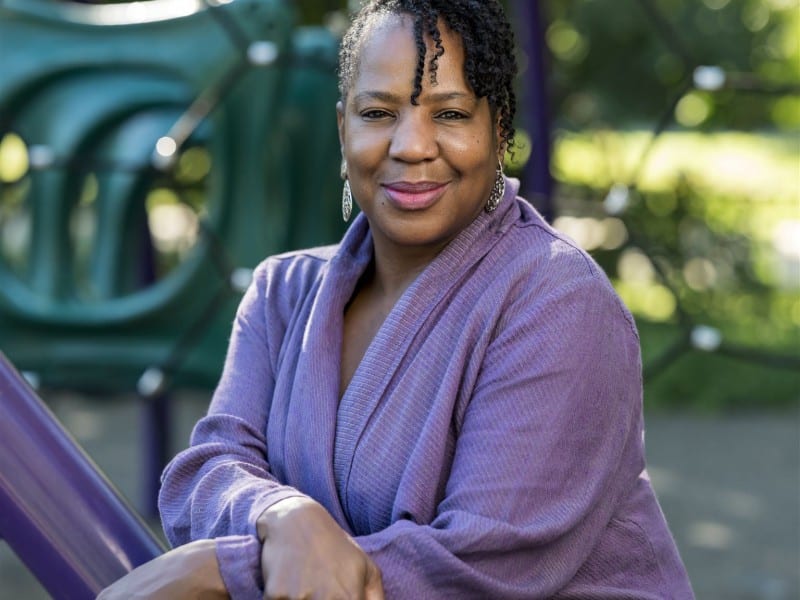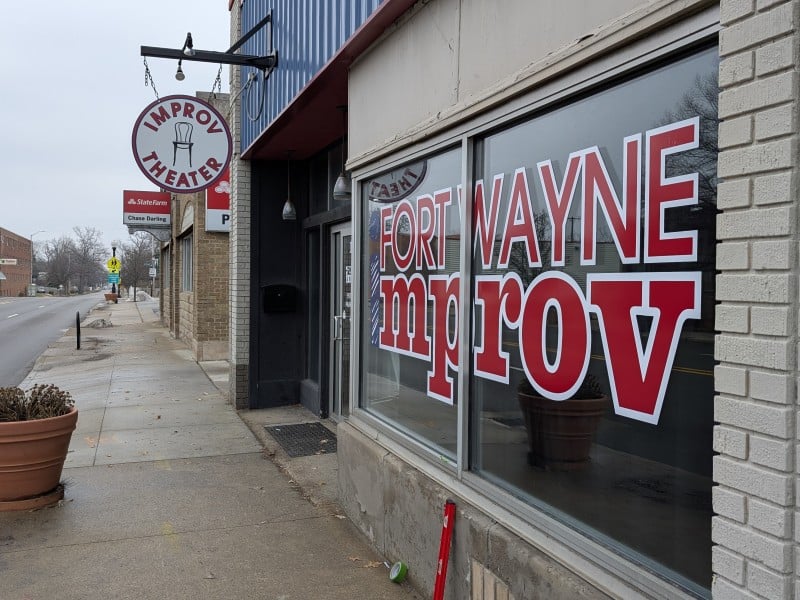Preserving the language of his people: One Fort Wayne man’s mission to keep the Mon language alive
As the Mon language dwindles worldwide, Fort Wayne resident Nai Sac Lun is recording it in a 1,500-page dictionary.
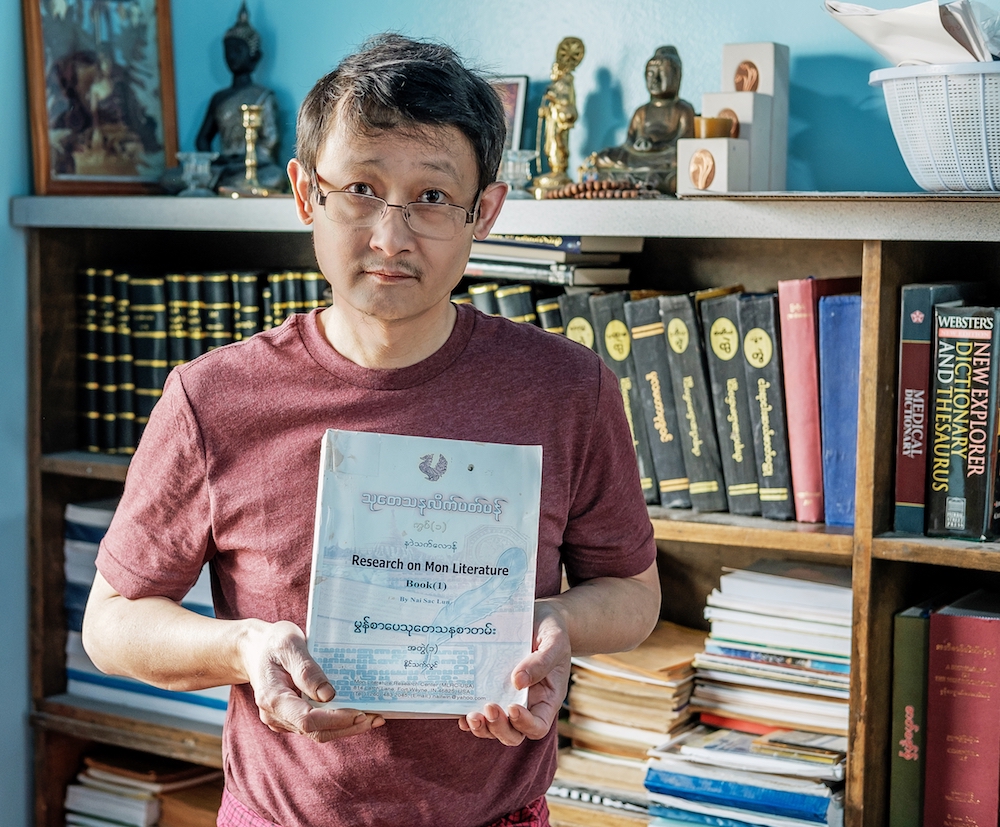
From a student activist in Burma (Myanmar) to a human rights journalist in Thailand to a resident of the United States and Fort Wayne, Nai Sac Lun has now taken on another herculean task. This time, it’s preserving the language of his people.
Officially known in the U.S. as Nai R. Sampranoi, he prefers to be identified by the name known to his Mon people, Nai Sac Lun.
After studying the Mon language for decades, Sac Lun began to compile a Mon-Burmese dictionary in 2005 with the hopes preventing Mon from fading out of existence.
Throughout the world, Mon is often relegated to a second language, after Burmese in Burma, Thai in Thailand, and English among immigrant populations like those in the U.S.
Mon was once a separate kingdom in Southeast Asia before it was invaded by the Burmese king in 1757 and absorbed into Burma. Even within the Mon State in Burma, Burmese is the official language.
“The Mon people lost everything, including home and culture,” Sac Lun laments.
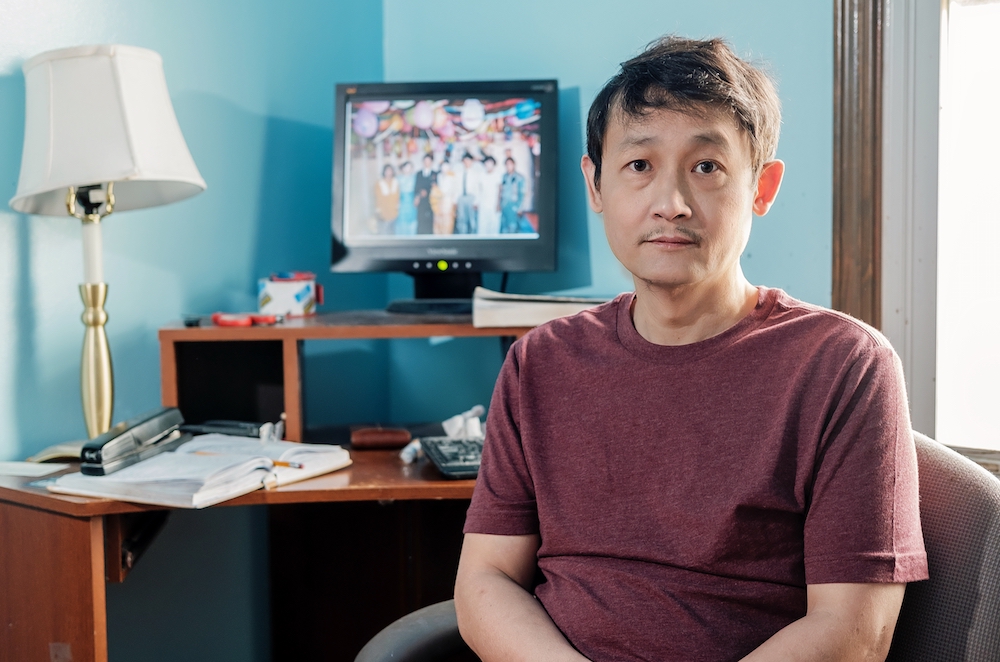
Without proper schooling and regular use, the Mon language continues to dwindle worldwide. It is classified as a “vulnerable” language by the United Nations Educational, Scientific and Cultural Organization (UNESCO), which keeps a list of endangered languages.
According to Sac Lun, even most of the Mon people today are not able to speak or write fluently in their mother language.
He estimates that more than 100,000 old Mon words have been lost because of disuse. But he hopes that his 1,500-page dictionary will be able to keep the language alive.
Creating a comprehensive Mon-Burmese dictionary is just another way that he has dedicated his life to protecting Mon culture and its people.
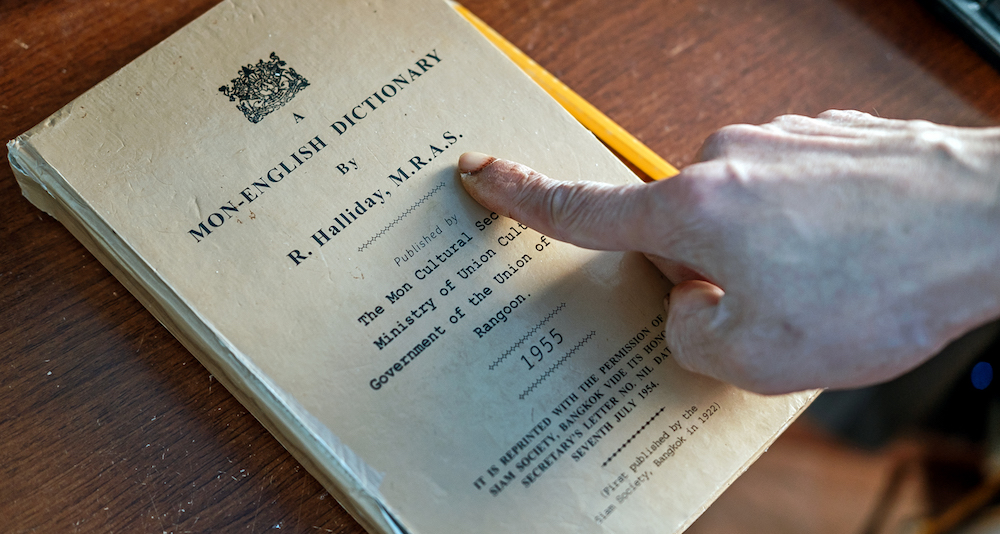
Sac Lun also wrote a book about his life in English, in which he describes how he joined the pro-democracy movement in Burma when he was a young college student during the late 1980s. He organized peaceful demonstrations and protests with other student activists in his home village of Lamine and in several surrounding villages. But when he was threatened with arrest and possible persecution, he fled his home for Thailand with other student activists.
From the Thai-Burma border, he worked as a journalist for the Committee for Publicity of the People’s Struggle in Monland (CPPSM), reporting on the human rights abuses in Burma to the international community until 1999.
Because of his work with CPPSM, Sac Lun needed to be able to translate documents such as the Universal Declaration of Human Rights and the Convention on the Elimination of All Forms of Discrimination Against Women into the Mon language. The more he studied Modern Mon, the more he came to know its richness, and thus, began his mission to preserve the language of his people.
In his book, Sac Lun explains, “The language is central to the existence of the Mon people. There is a well-known saying, ‘If the Mon language is dead, the Mon people will be extinct.’”
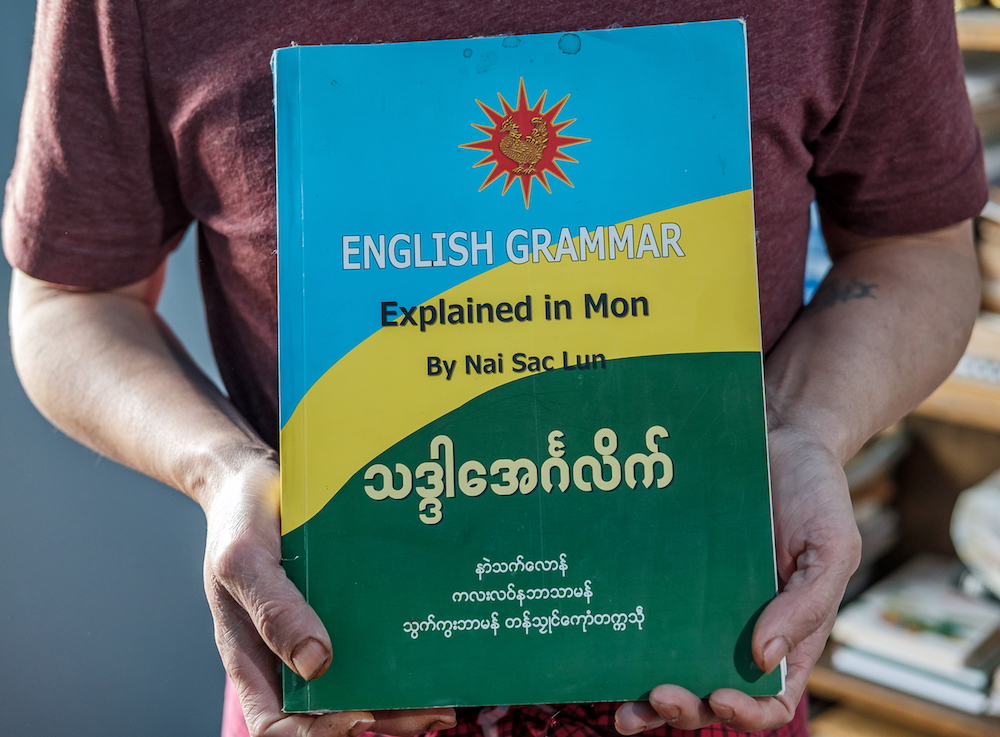
However, years as a human rights journalist was detrimental not just on Sac Lun’s physical and mental health, but also on his relationship with family. In search of a better life for his family, Sac Lun applied for asylum in the U.S. and was able to make a home with his family in Fort Wayne.
Not only is Fort Wayne home to the largest Burmese settlement in the U.S., but the largest Mon settlement, as well. While there are about 1,500 Mon people living in the U.S., Sac Lun is proud to say that the Mon population in Fort Wayne is around 500.
Even half a world away, Sac Lun is striving to preserve the Mon language—not just for the Mon population in Fort Wayne, but for all his people scattered across the globe.
Currently, Sac Lun is the project director of the Mon Language Preservation Organization (MLPO) in Fort Wayne, which is a nonprofit he co-founded. It is currently working on several projects, including translating human rights education and health education from English to Mon.
By collecting and reading Mon literature, Sac Lun has been able to expand his dictionary with words that are not often used in common speech today. The Mon-Burmese dictionary has been a massive endeavor, which Sac Lun has worked on alone and without any funding assistance. He hopes to complete the entire project sometime next year.
In his book, he says, “I have always been proud of myself as being one who works for the welfare of others and works for the good of my people and country.”
Learn more
Sac Lun’s book is titled The Mon Freedom Struggle in Burma: My Involvement As a Nonentity. It is edited by Dr. Chad Thompson and Helen Frost. Sac Lun is currently in the process of looking for a way to get it published.



